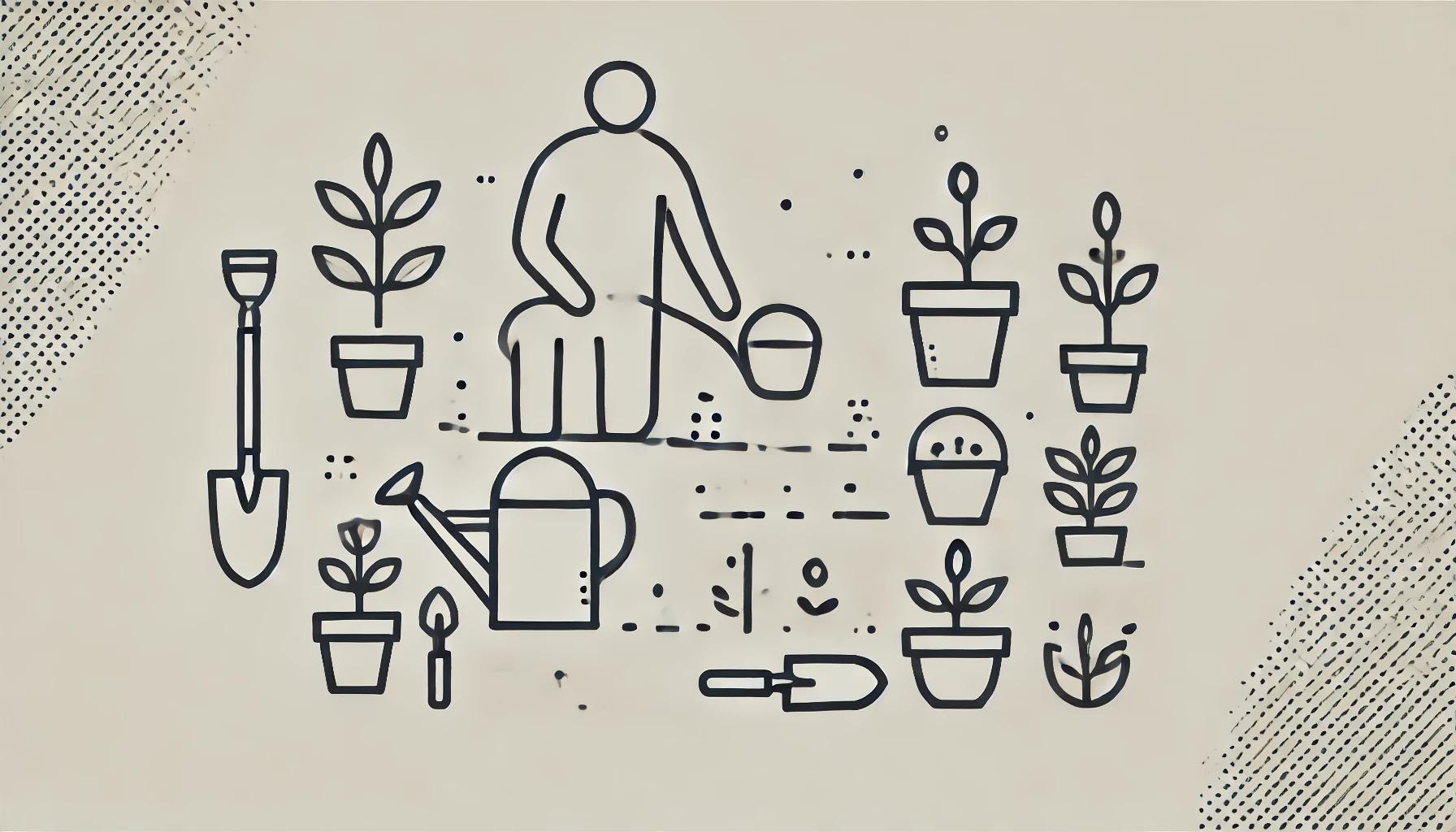Gardening is a fulfilling and relaxing hobby that connects us with nature and enhances our living spaces. For beginners, starting a garden can seem daunting, but with a bit of knowledge and patience, anyone can develop a green thumb. This guide will walk you through the basics of gardening, from selecting plants to maintaining your garden, ensuring a flourishing and rewarding experience.
Why Garden?
Gardening offers numerous benefits, including:
- Physical Exercise: Digging, planting, and weeding are great forms of exercise.
- Mental Health: The calming effects of nature can reduce stress and improve mood.
- Sustainability: Growing your own food reduces your carbon footprint and ensures fresh produce.
- Aesthetic Appeal: A well-tended garden beautifies your surroundings and increases property value.
Getting Started
Choosing Your Garden Type
- Container Gardening: Ideal for small spaces or beginners, container gardening allows you to grow plants in pots, which can be moved as needed.
- Raised Bed Gardening: Raised beds provide better drainage and soil quality control. They are also easier on your back and knees.
- In-Ground Gardening: Traditional gardening in the soil is suitable for larger spaces and allows for a variety of plants.
Selecting Plants
Consider the following when selecting plants:
- Climate: Choose plants that thrive in your local climate and growing zone.
- Sunlight: Assess how much sunlight your garden area receives. Full sun (6+ hours), partial sun (4-6 hours), or shade (less than 4 hours).
- Soil Type: Different plants prefer different soil conditions. Conduct a soil test to determine pH and nutrient levels.
- Water Needs: Group plants with similar water requirements together to simplify watering.
Essential Tools
Invest in basic gardening tools to get started:
- Trowel: For digging small holes and transplanting.
- Pruners: For trimming and shaping plants.
- Watering Can or Hose: Ensure your plants receive adequate water.
- Gloves: Protect your hands from dirt and thorns.
- Rake: For leveling soil and removing debris.
Planting Your Garden
Preparing the Soil
Healthy soil is the foundation of a thriving garden. Start by removing weeds and rocks from your garden area. Then, enrich the soil with organic matter such as compost or aged manure to improve fertility and structure.
Planting
Follow these steps for successful planting:
- Plan Your Layout: Arrange plants according to their sunlight and space requirements.
- Dig Holes: Dig holes slightly larger than the root ball of each plant.
- Planting Depth: Place plants at the same depth they were in their nursery pots.
- Watering: Water plants thoroughly after planting to help them settle in.
Garden Maintenance
Watering
Proper watering is crucial for plant health. Water deeply and less frequently to encourage deep root growth. Early morning or late afternoon is the best time to water to minimize evaporation.
Weeding
Regularly remove weeds to prevent them from competing with your plants for nutrients and water. Mulching around plants can help suppress weeds and retain moisture.
Fertilizing
Feed your plants with the right nutrients. Organic fertilizers like compost or fish emulsion are gentle and improve soil health. Follow the recommended application rates to avoid over-fertilizing.
Pruning
Prune plants to remove dead or diseased branches, encourage new growth, and maintain shape. Use sharp pruners and make clean cuts to avoid damaging plants.
Pest Control
Monitor your garden for pests and diseases. Use organic methods like handpicking insects, introducing beneficial insects, or using neem oil. Avoid chemical pesticides that can harm beneficial insects and the environment.
Harvesting and Enjoying Your Garden
For vegetable gardens, harvest crops when they are ripe for the best flavor and nutrition. Regular harvesting encourages more production. Enjoy the fruits of your labor by incorporating homegrown produce into your meals.
Joining a Gardening Community
Connecting with other gardeners can provide valuable support and inspiration. Join local gardening clubs, attend workshops, or participate in online forums to share tips and experiences.
Conclusion
Gardening is a rewarding and enriching activity that offers physical, mental, and environmental benefits. By starting with the basics, selecting the right plants, and maintaining your garden, you can cultivate a beautiful and productive garden space. Embrace the journey of gardening and watch your green thumb flourish.

Leave a Reply